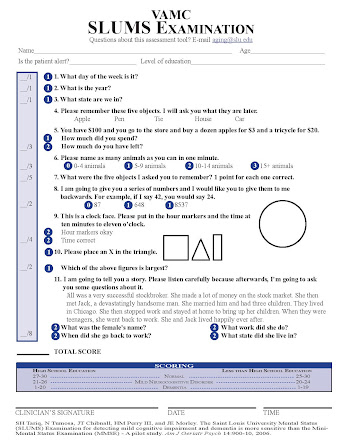Brain Robbery
The article I reviewed was about a man named Chuck Coma who
was previously a veteran and experienced 15 years in federal prison for armed
bank robbery after his time served in war. As a veteran, Chuck experienced PTSD
which ultimately lead to him acquiring a pretty hefty criminal record. The time
in prison was not going very well for Chuck because his cellmate was linked to
being violet with correctional officers. This led to the assumption that he was
also involved in this. Those accusations unfortunately landed Chuck a room in
the Special Management Unit. This particular unit is known for its horrendous
and mentally challenging conditions. While Chuck was in this unit, he was
placed with another cellmate who was known to be extremely violent (he even
killed his last cellmate), and eventually Chuck was the next victim. The cellmate
staged the situation to look like a suicide. The correctional officers found
Chuck lifeless on the ground with a bed sheet tied around his neck. However, it
was confirmed later from other inmates that this was definitely an assault.
Following
the attack, Chuck was rushed to the emergency room, and they were able to revive
him; however, he never was the same after this. The injury he sustained was an anoxic
brain injury which means that there was an extreme lack of oxygen to his brain
causing his post-injury symptoms. Chuck’s family fought to get him released
after he was treated so poorly within the prison system and while he was at the
hospital. Gratefully, he was later released after the confirmation of his
attack being an assault. The challenges of his new life were just beginning for
Chuck. The post-injury symptoms he was experiencing were tremors, irritability,
unsteady gait, slurred speech, memory loss, personality changes, weight loss
and fine-motor deficits. This directly affected Chuck and his daily occupations.
Not to mention – he was still experiencing PTSD flashbacks from being a
veteran. The family stated that the biggest concern were his tremors, gait and
his severe personality changes. Thankfully, doctors worked diligently to get
Chuck on a medication regimen that was able to put him in a more stable place
mentally and physically, but he still struggles daily from his injury.
I think
the biggest takeaway from this experience is that this anoxic brain injury
caused him to be changed completely. Chuck previously was a very physically
fit, cognitively sound, former veteran with an impulsive past who is now presently
a man who is dependent on his mother to be his caretaker daily. This shows how
brain injuries have so much variability on a person and can be absolutely life-
altering to independence. I chose this because I was curious on his personality
change from being a stereotypical, “rough around the edges”, prisoner to being a
man with a brain injury trying to gain their daily independence and mindset
back every single day. I also believe that those who are criminals do not get
much attention or sympathy because they have committed crimes, but it is
crucial for future practitioners to be the change of that. I strive to be
inclusive and empathetic of everyone no matter the past or current status, so I
wanted to expand my studies to those who may not experience this. They deserve
our understanding and care. To learn more about Chuck Coma’s story click here.
Chuck’s family also created a facebook support group called, “Rights for
Federal Inmates and their Families”! Check this out here to learn more about how you
can, too, support those who are experiencing similar situations.
Thompson, C. (2019, December 17). When A Prisoner Returns Home
With A Brain Injury, Freedom Isn’t So Free. NPR. Retrieved August 3, 2022,
from
https://choice.npr.org/index.html?origin=https://www.npr.org/2019/12/17/788824775/when-a-prisoner-returns-home-with-a-brain-injury-freedom-isnt-so-free



Comments
Post a Comment